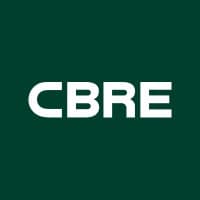
Measure and reduce Scope 3.1 purchasing emissions
 CBRE
CBRESummary
Use AI to calculate and measure primary emissions data from suppliers and assess the type of engagement required to assist them in decarbonizing hotspots.
Context
To achieve CBRE’s goal of net zero emissions by 2040, we need to significantly reduce emissions from purchases we make on behalf of our clients and in our own operations. We have over 130,000 suppliers, big and small, contributing over 5.33 million tCO2e of emissions and continue to grow our business.
Our analysis showed we’d have to move from spend-based methods to more accurate, actual emissions calculations, engage our suppliers with the highest emissions, and work intensively with them to decarbonize. Approximately two-thirds of our suppliers had no emissions reporting capability and the remaining used low-accuracy calculations. We needed a supply chain decarbonization program that met the needs of any supplier, while also providing tools to improve their reporting.
As a response we established a supply chain decarbonization program, Carbon Trace, allowing us to transform the approach to supply chain emissions from a cost center to a differentiating solution.
Solution
CBRE already had an established supplier sustainability assessment program, with over 600 suppliers meeting our minimum threshold as assessed by EcoVadis, demonstrating that we spent $5.8B with sustainable suppliers in 2023. However, to meet our net zero goal, we needed a more comprehensive, efficient, and value-added approach to our supply chain.
We created, Carbon Trace, a supply chain decarbonization program to:
Engage material suppliers at scale to obtain high-quality data
Efficiently calculate emissions for low-maturity suppliers, harnessing AI
Identify the relative maturity of suppliers by using publicly disclosed information
Improve the quality of emissions reporting from medium maturity suppliers
Provide benchmarking and value-added reporting for all participating suppliers
In 2023, CBRE made a strategic investment in carbon management platform Emitwise, opening a deep level of collaboration to co-develop a solution since no other market solution met our requirements.
Though this strategic partnership, we identified an initial 7,500 suppliers to target to enable the biggest reductions, and developed a program to facilitate our suppliers to calculate, report, and benchmark their emissions, while developing long-term decarbonization strategies.
CBRE deploys the Carbon Trace supplier decarbonization program by meeting suppliers where they are with their own emissions management maturity. CBRE gains access to emissions information sourced directly from suppliers (primary data) instead of estimates from emission factor databases (secondary data). This crucially enables CBRE to decouple emissions growth from business growth in our supply chain.
To make an impact along CBRE's complex and international supply chain, CBRE aims to engage with targeted suppliers between 2023-2025. This differs from most large companies who tend to have 2-300 suppliers who contribute to their top 80-90% of supply chain emissions. CBRE’s supplier engagement priority is based on emissions materiality, supplier type (i.e. significant suppliers), client decarbonization goals and CBRE's decarbonization goals.
Supplier engagement through Carbon Trace starts with hosting invited suppliers to co-branded webinars with timing tailored to the different global regions. The webinars explain the strategic importance of Project Carbon Trace to suppliers to build decarbonization focus and momentum. Suppliers are enabled to intimately engage with subject matter experts via plenary Q&A and most importantly via breakout rooms providing hands on interactions.
Supplier fatigue was a key consideration in the program development. CBRE are conscious that many large enterprises are asking suppliers for ESG data in different formats. Carbon Trace’s processes are seamless and aligned with GHG Protocol, ISO14064, and SBTi. Carbon Trace scans publicly available emissions data and reduction commitments for suppliers, asking them to verify the information and providing the opportunity to enrich data by submitting Product Carbon Footprints (PCFs), Life Cycle Assessments (LCAs) or Environmental Product Declarations (EPDs). Where not publicly available, suppliers can submit pre-calculated emissions data themselves, but the ultimate value add to suppliers is that the Carbon Trace program can calculate Scope 1, 2 and 3 emissions baselines leveraging Emitwise’s AI platform.
Emitwise measured the suppliers engaging throughout while also supporting them to help CBRE gain a full view of their supply chain emissions.
Impact
Climate impact
Targeted emissions sources
Scope 3
Category 1 (Purchased goods and services)
Category 2 (Capital goods)
Decarbonization impact
In 2023, Carbon Trace engaged over 1,000 suppliers, with over 300 providing data on their decarbonization plans, and 162 using the platform to calculate or verify their emissions. Notably, 60% of these suppliers calculated their emissions for the first time, offering unprecedented visibility into 119,000 tCO2E.
Business impact
Benefits
The three main outcomes of the program:
CBRE were able to shift supply chain sustainability from a cost to an opportunity by building a Net Zero Supply Chain solution. CBRE’s Net Zero Supply Chain was piloted with several strategic CBRE clients, giving them unprecedented visibility over their Tier 2 supplier emissions in their real estate portfolios. CBRE demonstrated which suppliers performed above or below industry benchmarks, enabling adapted procurement processes to deploy lower carbon solutions for clients.
Successfully engaged suppliers at scale and built their capability to calculate and report accurate emissions data. As detailed above, 60% of suppliers benefiting from emissions benchmark information via the program were enabled to calculate their company-wide emissions for the first time. Suppliers are invited to use the tools provided free-of-charge to calculate their emissions, reducing barriers to entry. The capability building provided to suppliers was achieved in less than one calendar quarter incorporating carefully selected supplier information into CBRE’s innovative Carbon Trace platform enabled by Emitwise. Feedback from a supplier, Churchill: “I was blown away by the level of support and value provided; I think it's just been fantastic. We now have a reference point for all our Scope 3 calculations, which puts us in a really great position.”
Refined and reduced CBRE’s Scope 3.1 & 3.2 emissions baseline by moving away from a spend based method to a hybrid method. Core to the philosophy of the program is ensuring CBRE decouples business growth from supply chain emissions. In 2023, CBRE were able to refine over 119,000 tCO2E, giving far greater insight into the sources of emissions and the possible strategies for reducing them.
Costs
Costs include:
Enterprise license fee for a carbon accounting solution, strategically designed to provide no-cost tools to suppliers. Primary cost driver is number of suppliers to engage.
Program manager for overall program coordination, Champion Network facilitation, supplier contact collection and supplier engagement.
Category Managers or subject matter experts for escalation and direct supplier engagement.
Impact beyond climate and business
Co-benefits
This program supports supply chain transparency and identifying tier-n suppliers that can also be engaged on labor and human rights or nature initiatives.
Implementation
Typical business profile
This program is designed to solve supply chain decarbonization challenges in a heterogenous supply chain which may present a higher proportion of indirect purchasing and a large number of suppliers to be engaged. However, the principles and model of the program can work just as effectively for a company who has more homogenous supply chain, higher proportion of direct purchasing, and fewer suppliers.
Approach
Following an extensive market review and three proof-of-concept rounds during which program elements were co-developed with participating companies, CBRE selected Emitwise to support a multi-year supplier engagement program.
Emitwise leverages emission information and benchmarking to recommend most material suppliers that could be invited to the program, which is reviewed and approved by CBRE.
Internally, CBRE developed a Carbon Trace Champion Network, which accelerates the program rollout and ensures engagement with relevant stakeholders.
Approved suppliers are assigned to Champions. Champions are invited to participate to an internal kick-off to set the course for the live campaign. After an initial CBRE communication to invited suppliers, Emitwise carries out supplier engagement campaigns providing suppliers with access to carbon accounting experts to support suppliers on emissions management questions.
Weekly updates are facilitated internally with CBRE and Emitwise program teams, focusing on successes, supplier response rates and requests made to CBRE Champions to nudge suppliers to spur participation where needed.
Since the Carbon Trace kick-off end 2022, four distinct supplier engagement campaigns gave participating suppliers access to tailored content, webinars, networking sessions and one-on-one support. After each campaign, key learnings were applied to refine messages, strategies, and incentives to better meet CBRE’s goal to double supplier engagement levels each year.
A key focus of Carbon Trace is to ensure that we avoid ‘reporting for reporting’s sake’, which highlights the importance of collecting supplier decarbonization initiatives and plans; not only emissions numbers. This data enables deeper supplier conversations and informs the reasons for improving data quality. We are also working to embed decarbonization as a supplier KPI.
In order to to mainstream the supply chain decarbonization program across the organization, CBRE’s Sustainable Procurement team is building a decarbonization reference library, which is designed to be shared in industry or multi-stakeholder initiatives. To ease internal accessibility to the decarbonization reference library, CBRE has built a Generative AI tool that helps internal stakeholders quickly identify lower-carbon strategies and resources.
CBRE monitors Carbon Trace program progress and drives continuous improvement through purpose-built dashboards that demonstrate supplier decarbonization performance, emissions sources, and key insights that strengthen low-carbon procurement strategies.
Stakeholders involved
The Carbon Trace program was sponsored by CBRE’s Chief Procurement Officer and Chief Sustainability Officer, and program managed by the Sustainable Procurement team. The program development and management require collaboration across Operations, Sustainability, Business Development and Digital & Technology teams.
Approximately 200 suppliers with high emissions were involved in the project pilot phases, and several key clients were consulted.
Implementation and operations tips
The central implementation challenge we faced was that despite extensive market engagement, we were not able to find a solution that provided ‘out of the box’ combination of emissions management AND supply chain management & engagement.
For this reason, we incorporated several competing proof-of-concept rounds to co-develop solutions and identify the most resilient partner.
This enabled us to design a CBRE standard for supply chain emissions which deliberately does NOT reinvent the wheel -- meaning uses the most well-known emissions management standards as cited above – to enable wide-scale adoption.
Up till now, CBRE has been able to generate success on the basis of a value driven voluntary supplier program. As the regulatory landscape shifts, it may be necessary to switch from a voluntary to mandatory supplier program in the future.
